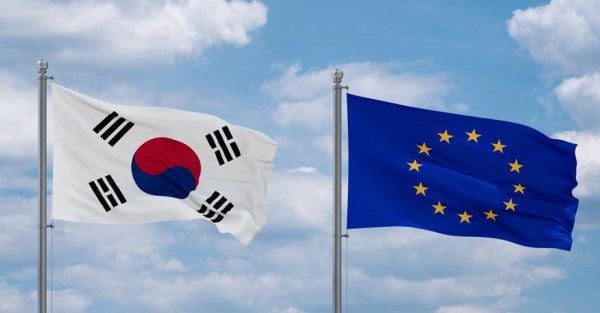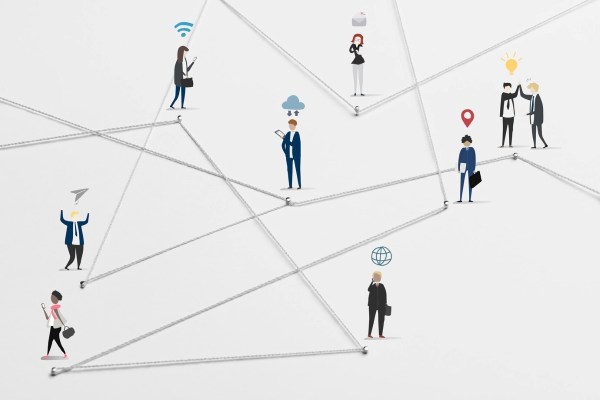RELATED POSTS
- Telefónica participates in the Internet Governance Forum Spain 2019 (IGF Spain) to analyse the sustainability of the current Internet model and its future challenges.
Under the slogan “Conflict on the Net? Internet, the global strategic board“, the Internet Governance Forum in Spain (IGF Spain) brought together representatives from the private sector, academia, civil society and government, highlighting this year a greater participation of young students.
Among the most outstanding topics addressed at the event, the role of the Internet in global geostrategy, the fragmentation of the network, the need to agree a new social contract for the web or freedom of expression in the digital environment stand out.
Segunda mesa# de #igfspain19 ¿como los stakeholders están contribuyendo a evitar el fraccionamiento de #internet con Rafael Pérez Galindo de @SEAvanceDigital Felix Arteaga Del Real Instituto el Cano, @christophsteck y @OfeTG de @internautas, modera Alfonso Muñoz de @europapress pic.twitter.com/rBqC6lysZJ
— Gobernanza Internet (@igfspain) November 7, 2019
The question of whether and who should regulate the Internet structured the debate on the fragmentation of the Internet. Christoph Steck (director of Public Policies and the Internet), Rafael Pérez Galindo (deputy director general of Information Society Services), Ofelia Tejerina (president of the Association of Internet Users) and Félix Arteaga (principal investigator of the Real Instituto Elcano) participated in this conversation.
Christoph Steck began the conversation by reflecting on the global reach of the Internet as opposed to the power of individual agents to act and the inability to sign global agreements. “We have a global model, but we do not have a global policy for the Internet”, he said.
The problem is aggravated by the fact that the multilateral processes that have been implemented since the mid-twentieth century are in crisis. We are heading towards a scenario in which it will be unlikely to reach a major global agreement, but different smaller-scale bilateral and regional consensuses will prevail. In this context, there is room for optimism if we succeed in making these agreements interoperable, as explained by the director of Telefónica.
“Internet, technology and standards are global, but we are moving towards a fragmented digital world. This is a great risk and there is a possibility that we will end up with two completely separate Internets”.
#igfspain19 pic.twitter.com/L6a8XI3pfG
— Telefónica (@TefOnIssues) November 7, 2019
Based on this approach, Rafael Pérez Galindo explained that, at the moment, we are no longer facing a struggle for critical resources, but for values. Thus, he proposed to evolve existing processes towards models such as ICANN (Internet Corporation for Assigned Names and Numbers) to debate and broaden the debate.
Beyond the debate on the fragmentation of the network, Telefónica was very present at this annual Forum on Internet Governance, thanks to its involvement in projects such as Contract for the Web and Internet for All.
José Manuel Alonso, director of strategy and partnerships at the World Wide Web Foundation, was responsible for explaining all the details of the Contract for the Web initiative, aimed at protecting an open website as a public good and a basic right for all users. Telefónica was the first telecommunications company to join the project, as part of its commitment to:
- Making the Internet accessible and affordable for all
- Respect consumers’ privacy and personal data
- Develop technologies for the good of society by placing people at the centre.
Along these lines, but focused on Internet access, Dolores González Pastor (Manager at Telefónica’s Corporate Office of Regulation and Public Policies) presented Internet para Todos Peru (IpT Peru), a project aimed at reducing the digital divide, which currently affects half of the world’s population. IpT Peru, which has already connected half a million people to the Internet in the six months since its launch, aims to connect four million Peruvians by 2020. The initiative will expand in Latin America with the goal of connecting the more than 100 million people who live in rural areas and difficult to access and do not have access to the Internet.
Dolores Gonzalez @Telefonica presenta el proyecto #Internet para tod@s cuya misión es conectar a las #personas pues la mitad de la población mundial vive en zonas rurales sin conexión a #internet https://t.co/9L1b9wElBM#igfspain19 pic.twitter.com/P28wTKVzne
— Gobernanza Internet (@igfspain) November 7, 2019
The Internet Governance Forum Spain has the support of Fundación Telefónica, Fundación Vodafone España, Google, Orange and Fundetel, as well as the main associations of users, companies and entities active in the Spanish Internet sector.
On the way to the IGF Global in Berlin
IGF Spain was the last public event to prepare the Global Internet Governance Forum, which will be held between 25 and 29 November in Berlin, and will be attended by leading Internet players from all over the world, including Telefónica.













